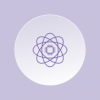Advanced Technologies for Industry – AT WATCH
The Advanced Technology Watch report delves into the dynamic landscape of the Internet of Things (IoT) across European industries. Despite being a transformative technology, the report underscores that the majority of IoT projects are still in the planning phase, with many confined to proofs of concept or limited trials.
IoT adoption varies across sectors, with utilities facing slower adoption due to extended technology investment cycles. In contrast, life sciences, transport, and logistics companies showcase higher-than-average adoption rates, benefitting from standardized mature use cases. The report emphasizes that the IoT ecosystem is far from mature, with challenges and risks accompanying its complexity, yet it presents vast opportunities for business benefits.
The COVID-19 pandemic has reshaped technology planning, resulting in reduced IoT budgets; however, many organizations view IoT as a solution to the crisis. The report projects a significant growth in IoT spending to reach €230 billion by 2024. It delves into the challenges of implementation, including cost, complexity, and security, while also highlighting key enabling technologies like modules, sensors, connectivity, cloud computing, edge computing, IoT platforms, and analytics.
The document accentuates diverse IoT use cases across industries, including consumer segments, manufacturing, utilities, healthcare, government, and transportation. It sheds light on the societal and sustainability impacts of IoT, portraying its role in driving sustainability and facilitating sustainable use cases.
Furthermore, the report explores the historical context, applications, benefits, drawbacks, and future prospects of IoT. While emphasizing the revolutionary nature of IoT technology, the report acknowledges challenges such as security concerns, skilled personnel shortages, lack of standardization, and privacy issues.
A notable portion of the report underscores IoT's potential in supporting sustainable practices and contributing to social good. Monitoring emissions, energy usage, and air quality through IoT aligns with the European Union's sustainability goals. Despite the evident benefits, the report calls for careful consideration of challenges to fully realize IoT's potential.

